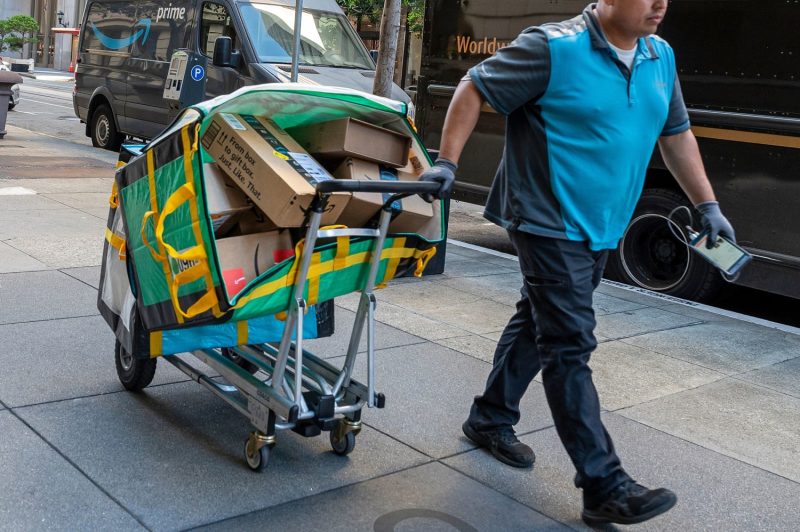Amazon, one of the world’s biggest e-commerce giants, finds itself in the midst of a controversy as it faces a lawsuit for allegedly excluding several neighborhoods from its Prime delivery service. The lawsuit was filed by the Attorney General (AG) of Washington D.C., questions Amazon’s commitment to fair and non-discriminatory services.
The complainant, AG Karl Racine, alleges that Amazon, as a widely recognized global service provider, has failed to provide certain neighborhoods in Washington D.C. with their acclaimed Prime service, which offers rapid delivery on a vast range of products. This allegation raises concern about inequality and discriminatory practices, both of which are prohibited by law.
The question of discrimination surfaced when it was noticed that a specific set of ZIP codes, particularly those in predominantly Black neighborhoods, were excluded from “Amazon Prime Free Same-Day Delivery,” and “Amazon Prime Free One-Day Delivery.” This disparity in service delivery, AG Racine insinuated, could significantly affect the purchasing capabilities of the residents of those areas.
Amazon’s Prime delivery service, as is well-known, encompasses an extensive range of benefits including free, rapid delivery. In several instances, it is the speedy delivery feature that has prompted customers to subscribe to Prime. The subscribers are also often attracted by the competitive prices offered by Amazon.
It is significant to note here, that Amazon has explicitly included an ‘equal treatment’ clause in its policy. As per this clause, Amazon applies the same standard delivery times to all locations, regardless of racial or economic factors. However, the current allegations seem contrary to these claims.
This lawsuit joins a series of scrutiny that Amazon has faced over the years for its labor practices and competitive behavior. Recently, Amazon has also had to confront antitrust accusations for allegedly driving out competition by offering massive discounts that other vendors cannot compete with.
The bigger exertion here is to ensure the equal distribution of goods and services to all parts of the country irrespective of economic disparities. If proven guilty, this lawsuit could result in severe repercussions for Amazon, including hefty fines and a potential revamp of their delivery policies and systems.
Furthermore, this case has opened up discussions around corporate responsibility. With social inequality at the forefront of public discourse, corporations, especially global giants like Amazon, are expected to be advocates of fair practices, serving all communities without prejudice or bias.
The lawsuit is an apt reminder that companies’ practices, more than ever, are under scrutiny. They cannot afford to forsake ethical considerations in the pursuit of financial gain. Transparency, equality, and non-discrimination should be integral to the services they provide.
As the lawsuit progresses, it’s clear that Amazon and other similar enterprises will have to reassess their policies and take proactive steps to ensure they are in line with the legal and ethical norms of service provision. Companies will need to be more diligent about enforcing existing policies, and where gaps exist, undertake necessary amends to ensure accuracy and fairness.
In conclusion, the lawsuit against Amazon is a significant moment in determining the path that corporations will need to tread in the future, emphasizing the critical need for them to adopt practices that reaffirm commitment to equality and non-discrimination. Consumer trust, and consequently, customer loyalty, hinges strongly on this adherence to ethical standards.




